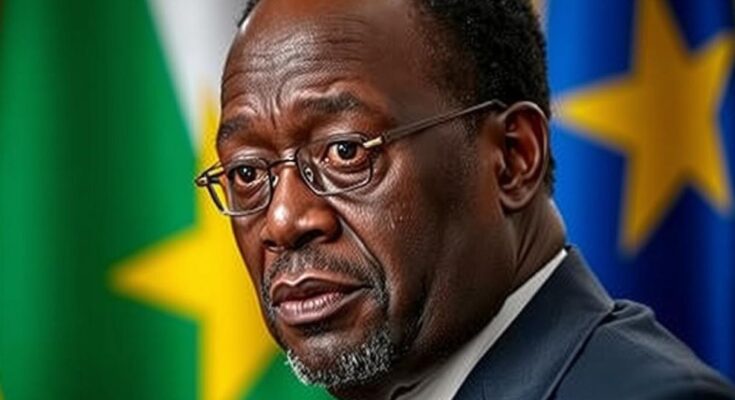Former President Joseph Kabila is mobilizing the Congolese people to oppose President Félix Tshisekedi’s initiative to revise the constitution. Kabila’s party, the FCC, argues that such changes could threaten national stability and accuse Tshisekedi of distracting from security issues. This situation mirrors past efforts by Kabila that faced significant opposition, highlighting the ongoing tensions in DRC politics.
Joseph Kabila, the former President of the Democratic Republic of Congo (DRC), is initiating a campaign to rally the Congolese populace against President Félix Tshisekedi’s proposal for a specialist commission to revise the constitution. Kabila’s political party, the Common Front for the Congo (FCC), is calling for collective resistance to this constitutional alteration, asserting that citizens will mobilize to “defend their rights, their freedom and their sovereignty” as articulated in a recent press release from the FCC. Kabila promptly contested President Tshisekedi’s justification for the constitution’s revision, which Tshisekedi had claimed was drafted by a diverse representation of Congolese citizens rather than foreign entities. The FCC accuses Tshisekedi of using this proposal as a distraction from his failure to maintain national security. They further contend that any attempts at revising the constitution pose a significant risk to the nation’s peace, unity, and stability. In 2015, Kabila himself faced significant backlash when he sought to amend the constitution during his presidency, ultimately abandoning this effort amid pressure from church leaders, civil society, and opposition parties.
The ongoing political landscape in the DRC is marked by tension and disagreements regarding the constitution, particularly concerning attempts to amend it. The constitution in question was established in 2006, a product of negotiations and efforts emphasizing the diversity of the Congolese people. In previous years, specifically during Kabila’s tenure, attempts to revise the constitution faced widespread criticism and opposition, highlighting the sensitivities surrounding national governance and stability, which are further amplified by security challenges in the country. As the relationship between the current and former president becomes increasingly strained, the potential implications of a constitution revision are a central concern among various political factions.
In conclusion, Joseph Kabila’s opposition to President Félix Tshisekedi’s proposed constitutional revision illustrates the complexities of political dynamics in the DRC. The FCC’s mobilization campaign underscores the belief that such revisions could threaten national stability and peace. Amidst past attempts to amend the constitution, Kabila’s current stance reflects a broader concern over governance and the need for the Congolese people to assert their rights and sovereignty in the face of potential political machinations.
Original Source: allafrica.com




